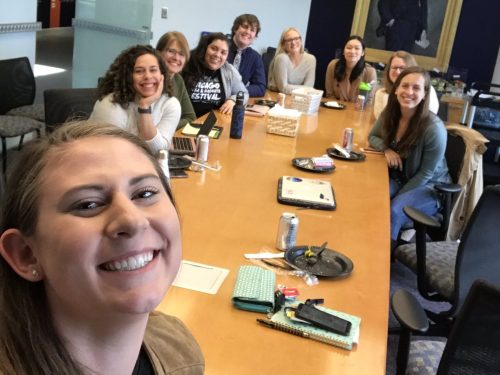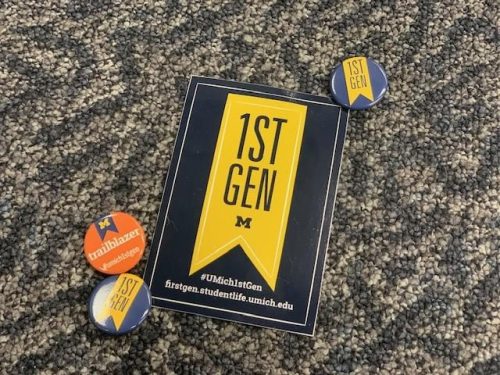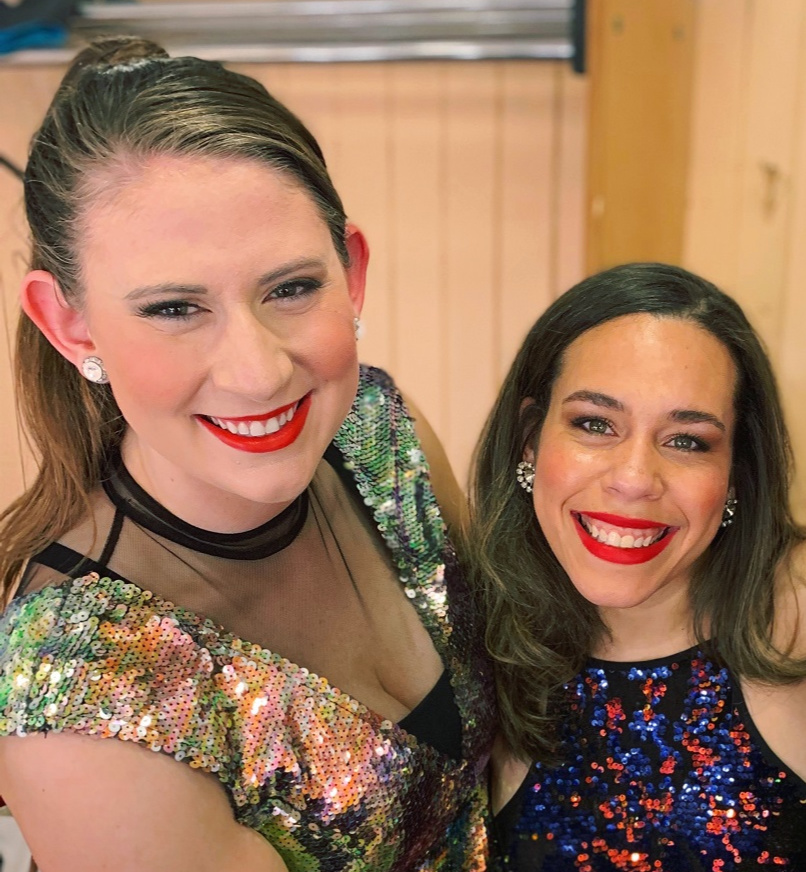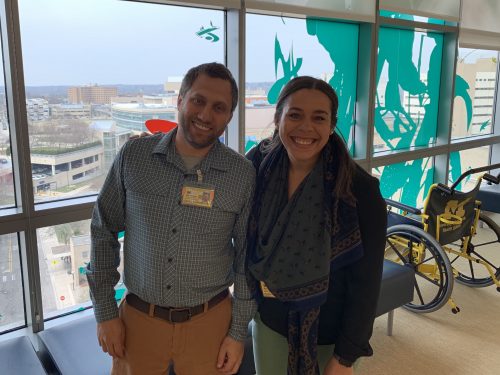Supporting First-Generation and Low-Income Students at Michigan Medical School
Hello! We’re Courtney and Jourdin, two M4s who have finished interviewing (for EM and OB/GYN — wish us luck in the Match!) and who spend a lot of time together as Smoker Musical Dance Demi-Czars, Biorhythms choreographers, baby animal parents, foodies, and close friends.
We also both happen to be first-generation, low-income (FGLI) students.
Though definitions may vary across institutions, most define a first-generation student as someone for whom neither parent has a Bachelor’s degree. Low-income students are often identified by eligibility for Pell Grants — grants the federal government provides as part of financial aid for undergraduate students meeting an income threshold. As you can imagine, there is often overlap between these groups. Approximately 12% of our medical school community identifies as first-gen, and multiple students hail from low-income backgrounds. As M4s, we know how difficult it can be to navigate the new environment of medical school, especially without loved ones who can provide guidance. We both have struggled, lacking the social capital (and more often than we’d like, monetary capital) necessary to thrive in medicine’s typically affluent environment.
Though already friends for years, we actually didn’t know of each other’s FGLI identities until it came time to share our Impact Project ideas with the rest of our class. Here at Michigan, everyone completes a Capstone for Impact. This project can be anything. From research to workshops — your only limitation is your imagination. The school administration is extremely supportive from both a mentorship and financial perspective to really help students leave something behind at Michigan.
Both of us hoped to spend the Branches, our third and fourth year curriculum, helping to improve the experience of both prospective and current FGLI students through targeted programming and mentorship. We were thrilled to find out that we both had a shared experience and could combine our efforts. With help from some amazingly invested Admissions Office friends (shoutout to Carol and Becky!) and our fantastic mentor Dr. Okanlami (check him out on twitter!– @okanlami), our little passion project has really taken off.

FGLI students brainstorming ideas for support!
We have been so excited to see the level of support from various offices across the school, and the level of engagement of our fellow FGLI students. This engagement has been instrumental in our progress, as we used student opinions gathered from focus groups and surveys to drive our efforts. From the insight of students, we have been able to establish outreach to prospective students and send representatives to Admissions events, work with the school to secure funding and resources for FGLI students, work on consolidating the existing resources into a more visible format, and we have just recently launched a peer mentorship program. This last effort is particularly near and dear to our hearts as we both remember the loneliness that can come from trying to overcome the challenges of being FGLI in medical school when you feel like you are alone in the struggles you’re experiencing. We hope that this will provide a first step to establishing a flourishing FGLI community at Michigan, where people feel they can be open with these often invisible identities.
More recently, we’ve been trying to ensure sustainability — at UMMS, at the University of Michigan more broadly, and nationally. We have been very deliberate in our efforts to identify underclassmen who can carry on and expand our project at the Medical School, to ensure that students will continue to benefit from these efforts after we graduate (In May! So soon!). Earlier this week, we attended a First Gen Community Dinner for students across the undergraduate and various graduate schools, which gave us further opportunities to network and build relationships with people on campus who are passionate about these issues. We are also currently working with students from several medical schools across the nation to develop a national FGLI organization.
 Taking on this enormous project in the context of continuing our normal medical school rotations has been challenging, but so rewarding. It has really affirmed for the both of us that Michigan is a special place where your goals and vision will be truly supported, and where you will be allowed to make a difference even as a student!
Taking on this enormous project in the context of continuing our normal medical school rotations has been challenging, but so rewarding. It has really affirmed for the both of us that Michigan is a special place where your goals and vision will be truly supported, and where you will be allowed to make a difference even as a student!

Courtney Kein and Jourdin Batchelor are 4th year medical students going into Emergency Medicine and OB/GYN. They love dancing, mentorship, restaurant week, and Greta Gerwig movies.

